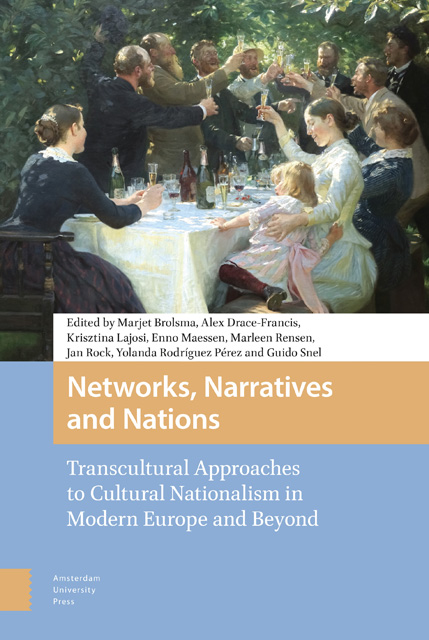 Networks, Narratives and Nations
Networks, Narratives and Nations Book contents
13 - Songs His Mother Taught Him: Émile Legrand’s Collection of Lacemakers’ Ballads
Published online by Cambridge University Press: 16 November 2022
Summary
Abstract
Émile Legrand was the leading scholar of modern Greek in late nineteenthcentury France; he also made a collection of songs sung by his mother and her neighbours, all lacemakers, in the village of Fontenay-le-Marmion in Normandy. Lacemakers in many parts of Europe had a distinctive work culture characterized by ballad singing, but this is the only evidence of lacemakers’ repertoire from Normandy. I speculate that Legrand's experiences growing up within this culture influenced his career as the progenitor of Akritic studies.
Keywords: Émile Legrand; Digenes Akrites; Gérard de Nerval; folksongs of Normandy; lacemakers; work culture
The Frenchman Émile Legrand (1841–1903) is best remembered as the progenitor of a subdiscipline in Greek letters – “Akritic studies.” In 1875 he was the first editor of a recently discovered manuscript of the Byzantine epic poem “Digenes Akrites,” the border warrior. And he was the first to propose a relationship between this medieval epic and modern ballads concerning the exploits of one Digenes Akritas. Four further manuscripts of the poem were located before the First World War, one of them also edited by Legrand. Scholars still debate their relationship to the oral ballads, whether the written poems rely on oral precursors, and if they concern any identifiable historical persons. In ways familiar to readers of Joep Leerssen's work, such philological and folkloric erudition has had political repercussions. The poems and songs of Akrites/Akritas were used to bolster the resurrected Greek state's ambitions over the lost territories of the Hellenes, stretching deep into Asia Minor.
Though Legrand showed little interest in classical Greek, he was devoted to the modern language; in addition to the two Akrites manuscripts he edited hundreds of other texts drawn from other manuscripts, early printed works and oral literature, some collected by himself. But the path which led him to the Chair of Modern Greek at the Paris School of Oriental Languages in 1887 was tortuous. The son of a village carpenter from Normandy, his parents encouraged him to enter the priesthood. He studied at the seminaries of Lisieux and Bayeux, but while he retained a religious sensibility he did not feel a vocation.
- Type
- Chapter
- Information
- Networks, Narratives and NationsTranscultural Approaches to Cultural Nationalism in Modern Europe and Beyond, pp. 157 - 166Publisher: Amsterdam University PressPrint publication year: 2022


